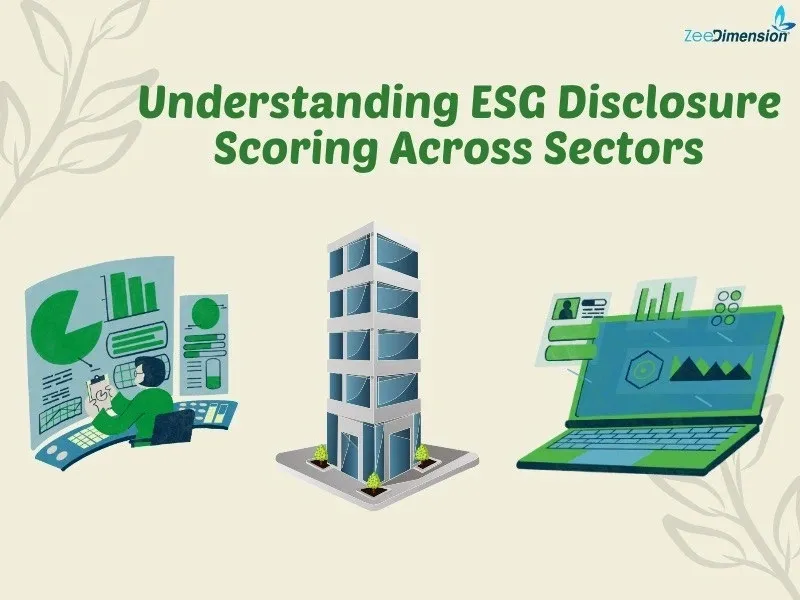
As companies increasingly prioritize sustainability and ethical practices, it becomes vital to understand how various industries assess ESG disclosures. However, evaluating ESG performance isn’t a one-size-fits-all approach; moreover, each industry has unique challenges, priorities, and impacts.
This blog explores how sectors tailor ESG scoring by using customized weights, peer benchmarking, and flexible metrics to ensure relevant and effective assessments. We will break down these scoring components with numeric examples to show how different industries measure ESG performance.
Weightage – Tailored for Each Sector
The importance of ESG factors varies significantly by sector; therefore, it is essential to adjust the weightage to reflect the materiality of these factors for each industry.
For instance, environmental considerations take precedence in the energy sector due to the industry’s direct impact on natural resources and emissions. Consequently, this leads to an environmental KPI weightage of 50%, with social and governance aspects comprising 30% and 20%, respectively.
Conversely, the retail sector places greater emphasis on social KPIs, reflecting the industry’s focus on consumer relations, labor practices, and community engagement.This results in a 50% weight for social factors, while environmental and governance aspects each hold 30% and 20%, respectively.
This tailored approach ensures that the ESG scoring accurately captures what truly matters for each sector’s sustainability and ethical practices.
📷
Scoring – Benchmarking Within Sectors
Companies score themselves relative to their peers within the same sector to ensure fair comparisons and drive sector-specific improvements. This benchmarking approach allows companies to evaluate their performance in the context of their industry, recognize leaders, and encourage competition for better results. For example, in the energy sector :
-
Company 1 reduces emissions by 30% = 10 points (sector leader).
-
Company 2 reduces emissions by 20% = 7 points.
-
Company 3 reduces emissions by 10% = 4 points.
📷
Flexibility – Custom Metrics for Relevance
A comprehensive ESG rating system is tailored with metrics selected from a master list to reflect the unique priorities and challenges of each sector. This customization ensures that the scoring is relevant and aligned with what truly matters for a specific industry. For example :
• Energy Sector: Focus on 15 metrics (10 environmental, 3 social, 2 governance).
• Retail Sector: Focus on 12 metrics (5 social, 4 environmental, 3 governance).
📷
Conclusion | Why Tailored ESG Scoring Matters
Tailored ESG scoring is essential as it aligns evaluations with sector-specific materiality, ensuring that the most relevant factors are prioritized in each industry. This customized approach encourages transparency, drives sector-wide improvements, and fosters a culture of continuous progress. By focusing on what truly matters for each sector, companies can make informed decisions and contribute to meaningful sustainability and ethical practices. Let’s push forward toward a future where ESG strategies are both impactful and industry-relevant! add a transition word for this sentence
What metrics are key to driving success in your sector? We’d love to hear your perspective! get in touch with us to explore ESG solutions tailored to your industry. Let’s work together to enhance your ESG strategy and make a meaningful impact. Contact us now and take the next step toward a more sustainable and transparent future!







